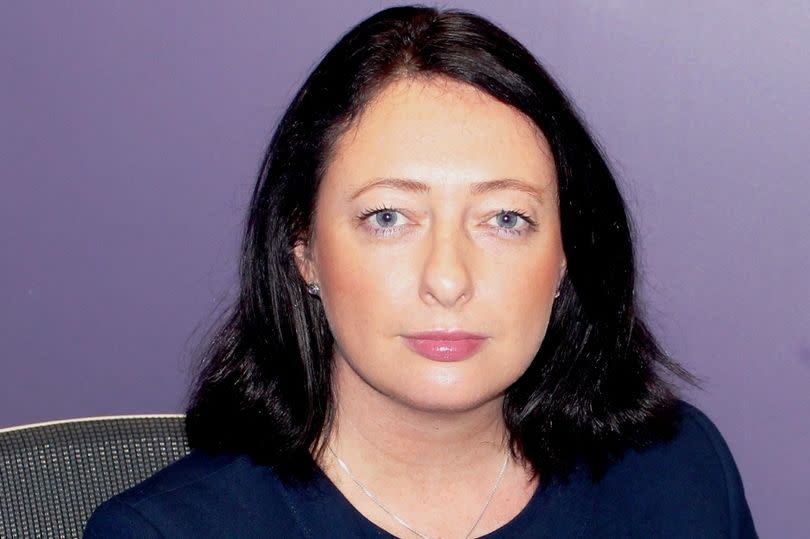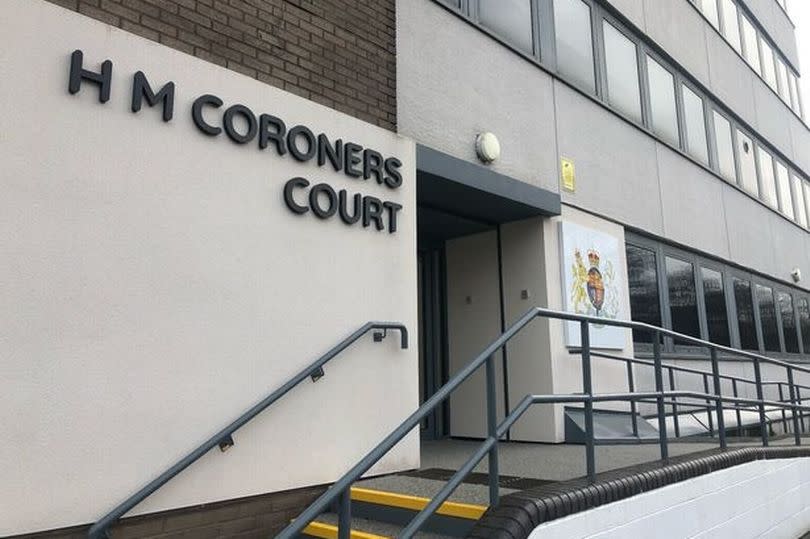An 11-year-old girl who dreamed of becoming a lawyer has died after her older brother hit her on the head in a fit of rage, and her family tried to cover up the incident, a coroner has ruled.
Falaq Babar was described as the ‘princess of her family’ as she washed another sibling in the bathroom of the family’s Bury Road home in Rochdale in February 2022.
The youngster was then given an ‘unprovoked, indefensible punch’ by her brother, 23-year-old Suhail Mohammed. Just 21 minutes after an ambulance was called, he sent text messages to his girlfriend saying he had ‘killed’ his little sister.
In the message he wrote that he had ‘hit her on the head’. Falaq died in hospital a month later.
READ MORE: ‘Extremists trying to profit’ from Manchester Airport incident, says Rochdale MP
In the texts, Mr Mohammed said she was “screaming her head off” and “it was the heat of the moment”. Senior coroner Joanne Kearsley said she had found “as a matter of fact” that Falaq had been the victim of an “unprovoked, indefensible blow” but because of the evidence heard at the inquiry she would not be reporting the case back to Greater Manchester Police or the Crown Prosecution Service (CPS).
Falaq had an “underlying, unknown brain malformation” that was described as extremely rare, according to Kearsley.
In his evidence, Detective Chief Inspector Stuart Round said he believed there was “sufficient evidence” to consult the Crown Prosecution Service in relation to Falaq’s death, pointing to a possible charge of manslaughter. But, he said, the CPS ruled there was “no case”, a situation he said he believed was down to the “complexity” of the medical evidence.

The coroner said in her verdict on Friday: “Tragically, the blow was not intended to cause Falaq any harm, but it is likely that the blow caused Falaq to become immediately unwell and have difficulty walking.
“I am confident that this would have ultimately led to her being anxious, complaining of pain, indicating that she felt she was dying and needed to be helped down. This anxiety and likely increase in her blood pressure would have caused the rupture of her underlying unknown malformation in her brain.
“I am therefore of the opinion that on the balance of probabilities Falaq was unlawfully killed.”
Mr Mohammed was arrested after his death and an investigation into a ‘suspected attack’ was launched. However, the investigation found that the Public Prosecution Service (OM) decided that no further action would be taken after a dossier of evidence was handed to them.
The investigation heard he was questioned again by Greater Manchester Police when the text messages were found, but refused to answer questions.
Mr Mohammed told police he had used a ‘considerable amount of force’ to open the door and had ‘hit’ it with his ‘shoulder and elbow’ before finding Falaq ‘on the floor’ near the radiator.


He said he pushed the door from the outside and pulled Falaq out from the inside after hearing “an argument” with a younger brother who wanted to get in. Falaq was inside washing one of the siblings at the time.
Ms Kearsley said there were “no emergency services at any point” who said Falaq might have been beaten.
The inquiry heard that Falaq’s parents refused to give Greater Manchester Police permission to interview the other children present. Mr Mohammed’s girlfriend also refused to co-operate with police.
The coroner said it was “difficult to understand” why the family “were so reluctant to at least discuss with GMP the possibility of talking to the younger siblings”.
She said she felt the evidence provided by “all the family members” was an “attempt to cover up or obscure” that her brother had beaten her.
Mrs Kearsley said: “The evidence of all the family members was inherently implausible, inconsistent and unconvincing. I am satisfied that the accounts given were exculpatory in nature and untrue. They were given in an attempt to conceal or cover up the fact that Falaq’s older brother hit her in a fit of rage.”


She said it was ‘likely’ that Falaq and the brother who wanted to use the bathroom had been arguing and that Mr Mohammed became ‘frustrated’ by the noise. He ‘shouldered’ the door with ‘considerable force’ and gave Falaq no warning.
Ms Kearsley said in her ruling: “I find that he [Mr Mohammed] acted in the heat of the moment and probably with a certain amount of frustration.
“I believe he hit Falaq with his shoulder against the door and then hit Falaq on the head. This is completely consistent with the evidence at the time, particularly the text messages Suhail sent to his girlfriend and the comments about hitting Falaq. Whether Falaq also hit her head against the door or the wall cannot be determined from the evidence.
“I must stress that there is absolutely no evidence before the court that the act of Falaq’s older brother or sister was in any way carried out with the intention of killing or causing her serious bodily harm. This is not murder.”
She said that in her opinion Mr Mohammed ‘probably acted out of frustration and irritation about the noise’.
“This was an unlawful act and amounted to an unreasonable and excessive use of force,” Ms Kearsley added.
The investigation into Falaq’s death was abruptly halted last year after potential new evidence came to light.
Ms Kearsley said ‘it became apparent’ that family members – namely Mr Mohammed and Falaq’s grandmother, Zabida Bibi – could be heard on the 999 call ‘speaking amongst themselves’. The recording was enhanced and specialist translators were brought in.


According to the coroner, Mrs. Bibi was heard to say, “A punch/attack?” or “Who hit her?”
Mr Mohammed is also reported to have said: “We pray to God and do not make a big deal out of it because it is still early in the morning” or “We do not announce it (we do not announce it) in the morning,” according to her statement.
Dr Daniel Du Plessis, a neuropathologist, said during the resumed investigation that it was a “complicated case” and that Falaq had suffered a bleed in her brain.
Surgeons operated, he said, but “major damage” had already occurred. He said a subsequent bleed into a “small but vital” blood vessel suffered by Falaq was “highly unusual” and “extremely rare.”
He presented three possible scenarios: trauma ruptured a healthy blood vessel; trauma ruptured a weakened blood vessel – weakened by an underlying problem – and an increase in blood pressure ruptured the blood vessel.
“I can’t separate the two,” he said, adding that a pre-existing, naturally occurring lesion has an “edge” over other causes.
Ms Kearsely said: “Overall, it is likely that Falaq had an unknown pre-existing abnormality, namely an arterial venous malformation in the posterior inferior cerebellar artery. This is an extremely rare condition. This could not have been known to Falaq and her family.
“As a result of the trauma Falaq suffered, she likely suffered from anxiety and increased blood pressure. This directly led to a ruptured blood vessel, which caused bleeding in her brain.”